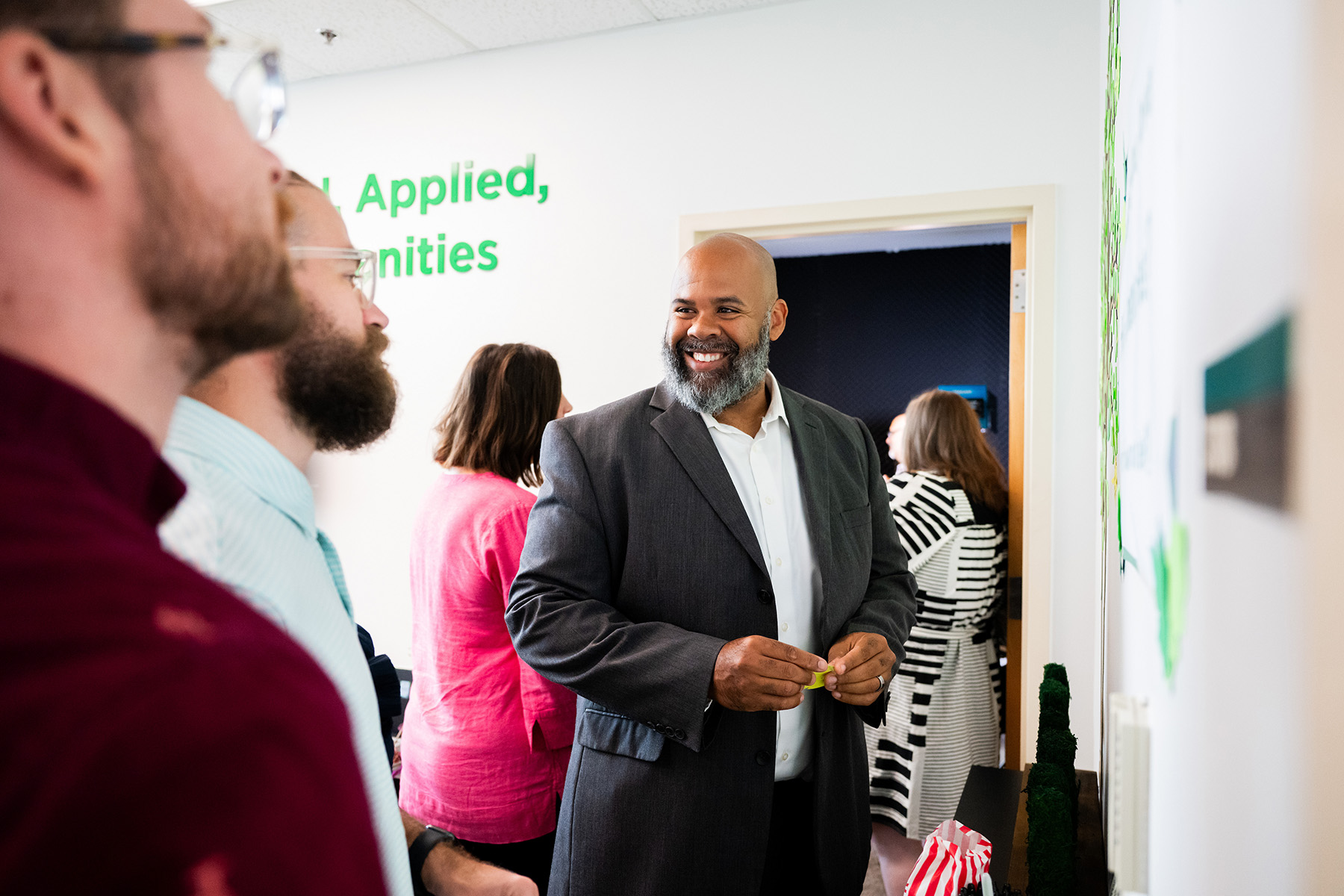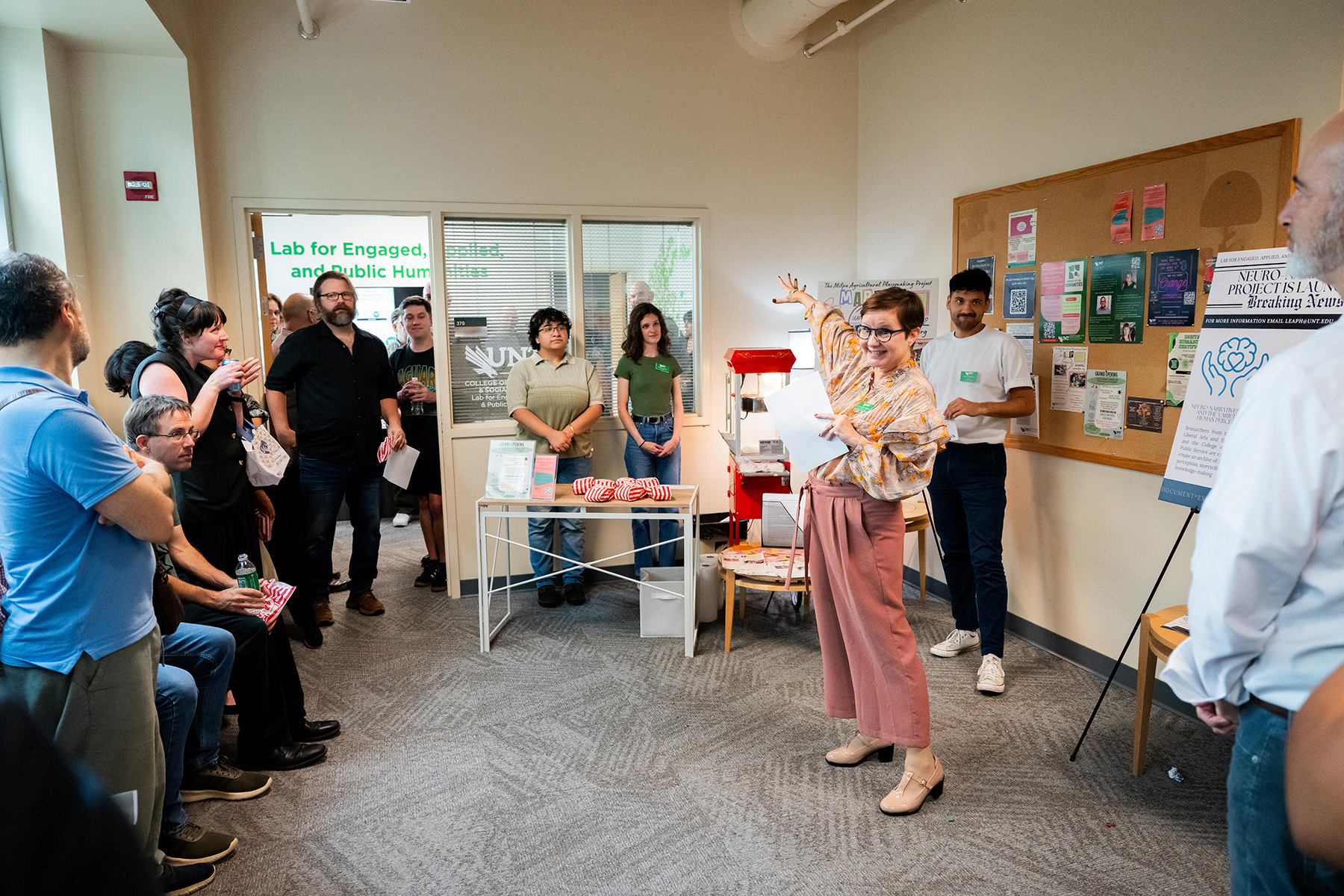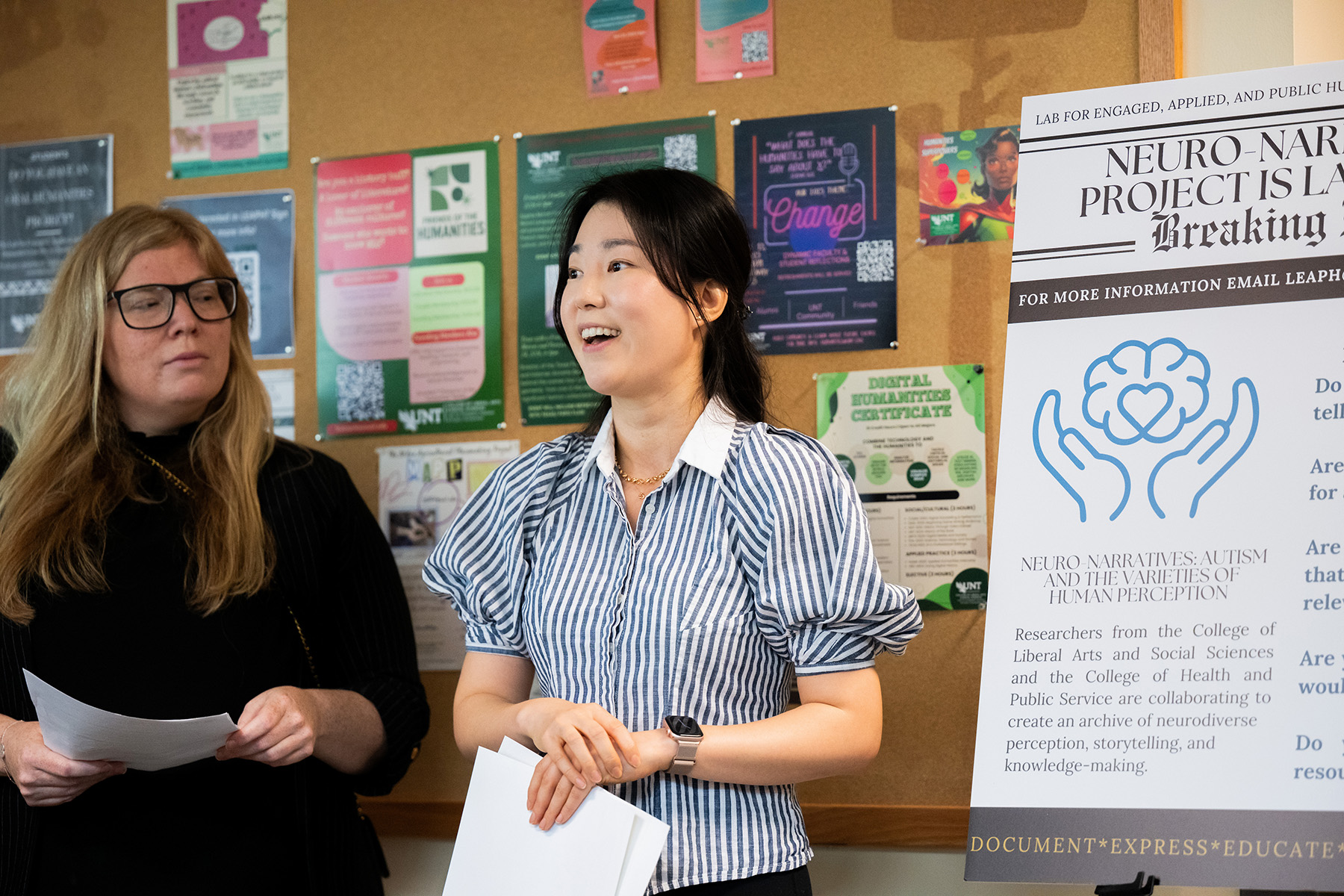
DENTON (UNT), Texas — Faculty and students at the University of North Texas celebrated the grand opening of a new center that will bring humanities scholarship
to the Dallas-Fort Worth region through applied research and collaboration.
The Lab for Engaged, Applied and Public Humanities (LEAPH) connects humanities scholars to the public to solve real-world problems.
The lab is comprised of faculty working groups and student researchers invested in
tackling societal challenges and creating accessible scholarship.
“The humanities are an active part of everyday life, sometimes in ways that are not
always obvious. This is an opportunity to engage the public and help our students
see the different ways they can apply the skills they’ve learned,” said Jakob Burnham,
director of LEAPH and clinical assistant professor in the UNT Department of History.

Housed in the College of Liberal Arts and Social Sciences (CLASS), the lab is both a research incubator and a multimedia lab space. The center
includes a conference room with space for meetings and work sessions, as well as a
studio for audio-visual recording. Jennifer Jensen Wallach, CLASS divisional dean
for humanities and professor of history, said the lab will serve as a central location
for faculty looking to collaborate across disciplines.
“We see this as a place to generate and uplift faculty research projects that have
public-facing components. The space is jointly owned by all of the humanities disciplines,
and that’s powerful,” Wallach said.
One such project now housed in the lab is the Milpa Agricultural Placemaking Project (MAPP), which received funding from the USDA’s National Institute for Food and Agriculture.
Faculty and students affiliated with MAPP are working on several public-facing initiatives,
including the creation of a seed library for public use, an educational partnership
with a Denton-based community garden and seedling giveaways at local farmer’s markets
and festivals.

Although the lab has a humanities focus, interdisciplinary partnerships are also encouraged.
One of its inaugural initiatives is the Neuro-Narratives Project, a collaborative
effort between CLASS, the College of Visual Arts and Design and the College of Health and Public Service. Faculty and students from the Departments of History, English, Design and Rehabilitation and Health Services are working to create an archive of stories, knowledge and perspectives from autistic
and neurodiverse community members that will serve as an educational tool and a public
resource. Another is the Texas Animal Humanities Project — a collaboration between
faculty and researchers from the Departments of History and Philosophy and Religion — which blends humanities scholarship with ecological conservation efforts, like
distributing soil and native seed blends to attract and provide shelter for threatened
Texas horned lizards.
“Community service and engagement are the central tenet we’re working toward. We’re
really working to build lasting connections with the Dallas-Fort Worth community,”
Burnham said.
At the lab’s grand opening, faculty and researchers shared information about their
projects and distributed samples to attendees. Madison Black, a master’s student in
history and graduate assistant for the LEAPH, helped prepare the seed and soil samples
in support of the Texas Animal Humanities Project. She believes working with the lab
is preparing her to pursue a career in museum administration.
“I think working on these interdisciplinary projects, collecting oral histories and
working with the public is giving me the knowledge and skills to enter the workforce,”
Black said.
Sofia Stevens-Garcia, a senior double-majoring in history and Spanish, works as a
research administrator for MAPP. Now that the project has support from the lab, she
is excited to collaborate with researchers from other fields.
“The path forward for all fields of study is interdisciplinarity and working together
to achieve common goals. I’m really excited to work with students majoring in the
sciences because it’s important to have those perspectives.”
Once she finishes her undergraduate degree, Stevens-Garcia plans to pursue a master’s
degree abroad. She said her work with the lab is already helping her prepare for that
next step.
“I’m making connections with people in other fields that I wouldn’t have made otherwise
— this space is really creating a network of people,” she said.